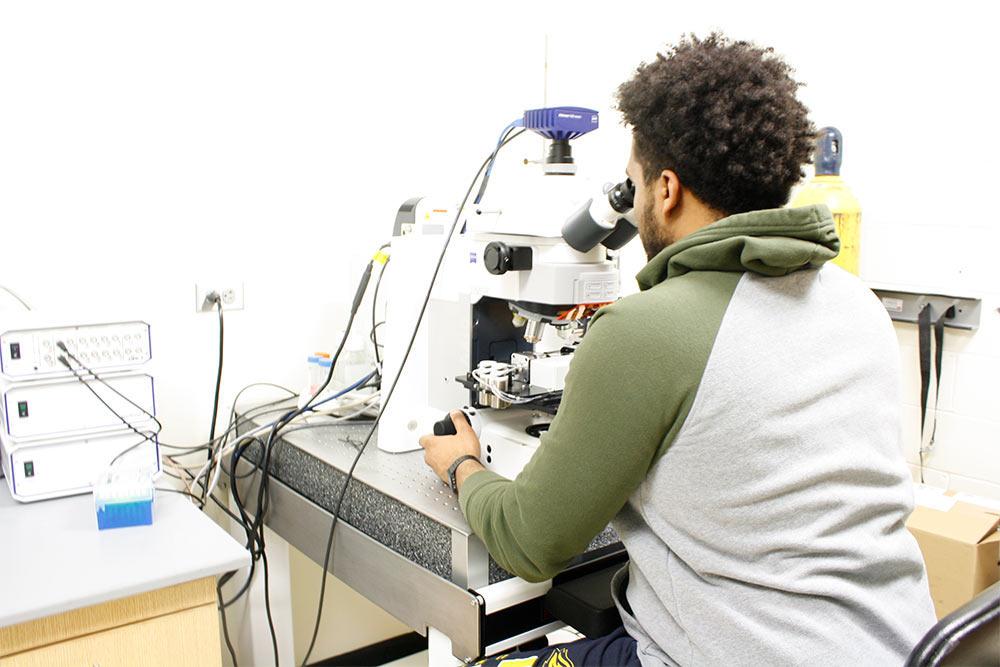
Grant from the National Science Foundation Expands Scientific Opportunities
A new imaging system on the Pleasantville campus provides fresh teaching, learning, and research capabilities.

Thanks to a grant from the National Science Foundation, the Dyson College of Arts and Sciences Departments of Biology and Chemistry and Physical Sciences have a new piece of equipment set to dramatically enhance and expand scientific research at Pace.
Described as a high-throughput imaging system, the state-of-the-art device allows faculty and students to gather and measure data that can be used in diverse areas of neuroscience research. It can process a large amount of data quickly, easily, and thoroughly, and gives the Pace science community access to the same microscopy and image analysis capabilities as can be found in laboratories at establishments including the Carnegie Institution for Science in Baltimore and the National Cancer Institute. It was installed on the Pleasantville campus earlier this year.
“It is incredibly convenient and useful for imaging many specimens at one time,” Kristie Oluyemi ’20, a behavioral neuroscience major, said.
Developed at MIT in 2010 and made commercially available by Union Biometrica, the machine will provide students with greater opportunities to experience working with large data sets, collaborate across departments and publish research findings. Some of the data generated will also be used in Pace University’s teaching laboratories to help strengthen STEM students’ quantitative and qualitative research skills.
“This system, in conjunction with the existing infrastructure, will enable us to do experiments that very few academic places have the capability to perform,” Assistant Professor of Biology Sally Marik, PhD said. Professor Marik served as the principal on the grant application. She worked with fellow biology professors Nancy Krucher, PhD and Aaron Steiner, PhD, and Professor of Chemistry Sergey Kazakov, PhD.